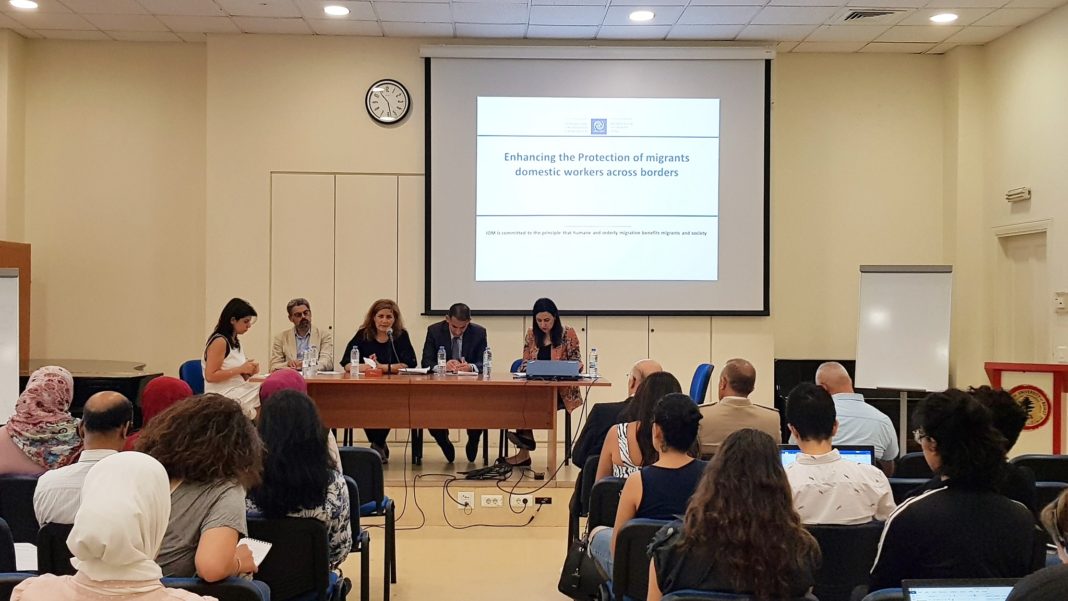On Thursday 27th of June, Amel Association International organized, at the American University of Beirut, and in collaboration with Caritas Lebanon, C.L.D.H, Abaad, MSD, and TGKO, a discussion day about the Domestic workers in Lebanon. The Seminar « Toward a National Protection for Migrant Domestic Workers in Lebanon » was held in order to discuss not only on the issues but also the solutions and policies that must be implemented in order to protect these workers and their inalienable rights which are often not respected. Indeed, more than 275,000 Domestic Workers live in Lebanon, coming mainly from Sudan, Philippines, Ethiopia, and Bangladesh. This migration is considered economical as they come to work in Lebanon, in search of better lives and salaries.
Many participants were invited to take part in the debate, some decision makers, such as Ms. Marlene Atallah, the Ministry of Labor’s representative, and Major Talal Youssef representative of the General Security, some academicians, and NGOs, as Mr. George Ghali, teacher at Université Saint Joseph.
The debate tackled different issues, inequalities, and discriminations that must face some Domestic Workers in Lebanon. Moreover, the Kafala system was presented as the main cause of this failing system. Implemented in Lebanon, as in some countries of the Middle East, the Kafala system is used to regulate the migrant laborers as they need to have a sponsor in the country that will give them both a working visa and a legal status. The worker’s status depends on the employer, and will then bound the Domestic Worker’s situation in the country to his employer. Such a system triggers dangerous consequences as abuse and violence from some employers. Many cases were reported where the Domestic Workers were abused, without any rights, unpaid or even locked in their employers’ houses.
A panel of solutions was presented by the different NGOs during the seminar in order to respect their rights, dignity, and humanity. Indeed, new policies were taken by the Ministry of Labor, as a blacklist of the employers who do not respect the Domestic worker’s rights or a phone number of the employees who abuse, but that is not enough. Therefore, the NGOs along with Amel Association International advocated changes and improvements in their living conditions through news needed reforms. The whole process has to be thought over, such as the departure of these persons fleeing to Lebanon in search of a better life through awareness sessions and their integration in the Lebanese society. The NGOs asked for a real contract between the employee and employer, a real follow up from the State, the establishment of a social support, and finally the need to change the employers’ mentalities. A real reform is a law on their situation in Lebanon in order to protect those migrant workers to ensure social welfare and rights.
Many challenges remain important such as racism and thus a huge campaign should be lead all across Lebanon in order to sensibilize the Lebanese population towards this cause. Therefore, this seminar was a real step in this process as it gathered the civil society around a burning issue.





 Creative Commons Attribution 4.0 International license
Creative Commons Attribution 4.0 International license